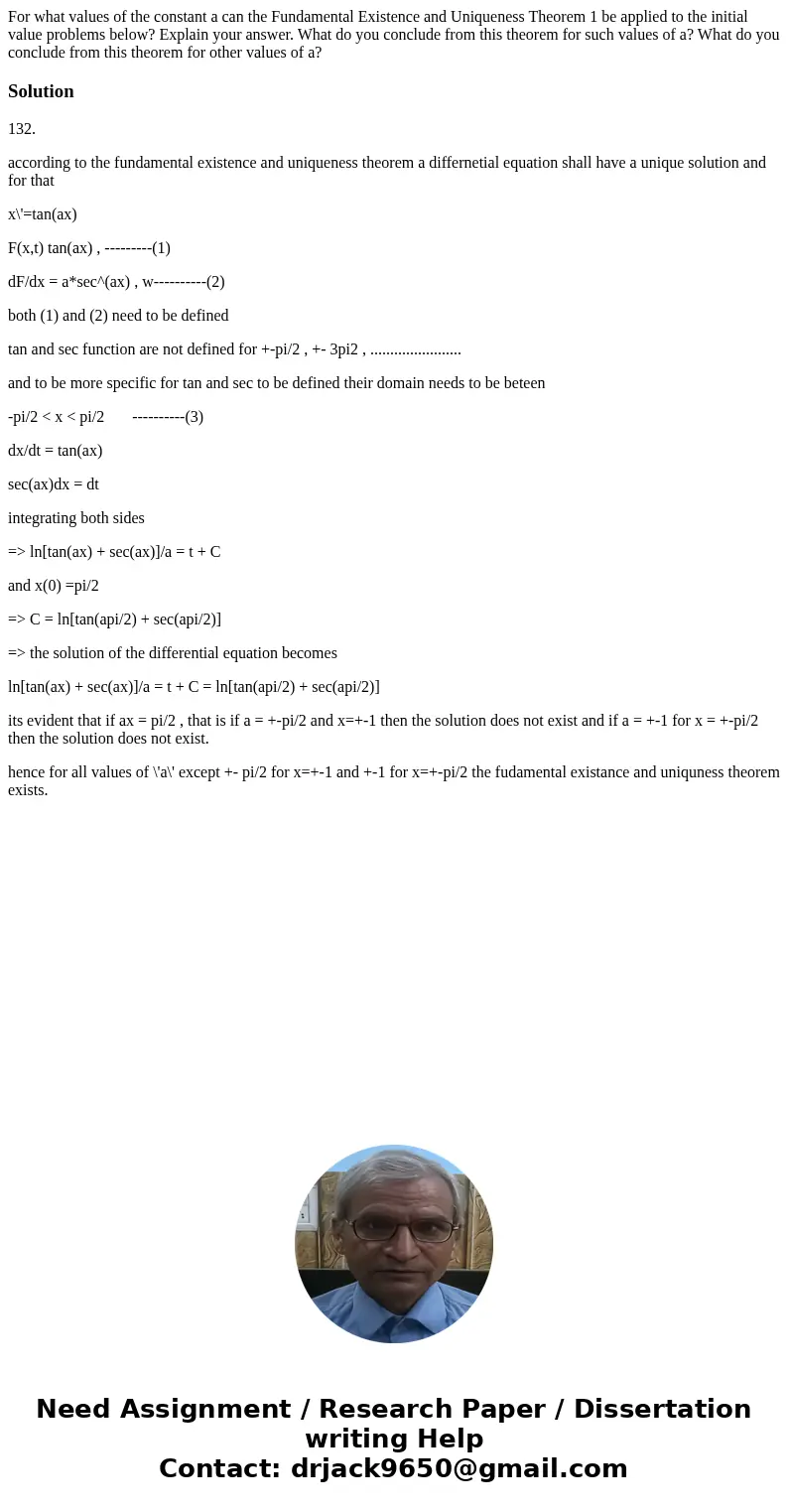For what values of the constant a can the Fundamental Existe
Solution
132.
according to the fundamental existence and uniqueness theorem a differnetial equation shall have a unique solution and for that
x\'=tan(ax)
F(x,t) tan(ax) , ---------(1)
dF/dx = a*sec^(ax) , w----------(2)
both (1) and (2) need to be defined
tan and sec function are not defined for +-pi/2 , +- 3pi2 , .......................
and to be more specific for tan and sec to be defined their domain needs to be beteen
-pi/2 < x < pi/2 ----------(3)
dx/dt = tan(ax)
sec(ax)dx = dt
integrating both sides
=> ln[tan(ax) + sec(ax)]/a = t + C
and x(0) =pi/2
=> C = ln[tan(api/2) + sec(api/2)]
=> the solution of the differential equation becomes
ln[tan(ax) + sec(ax)]/a = t + C = ln[tan(api/2) + sec(api/2)]
its evident that if ax = pi/2 , that is if a = +-pi/2 and x=+-1 then the solution does not exist and if a = +-1 for x = +-pi/2 then the solution does not exist.
hence for all values of \'a\' except +- pi/2 for x=+-1 and +-1 for x=+-pi/2 the fudamental existance and uniquness theorem exists.

 Homework Sourse
Homework Sourse